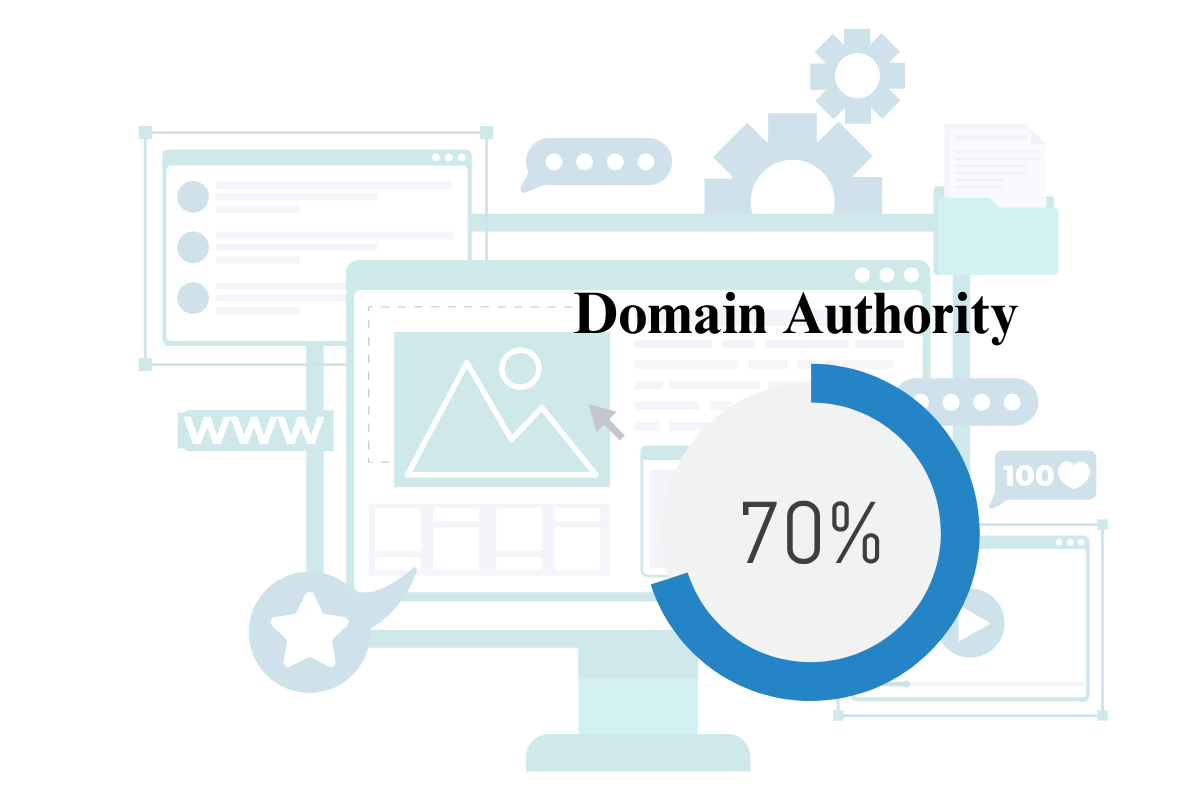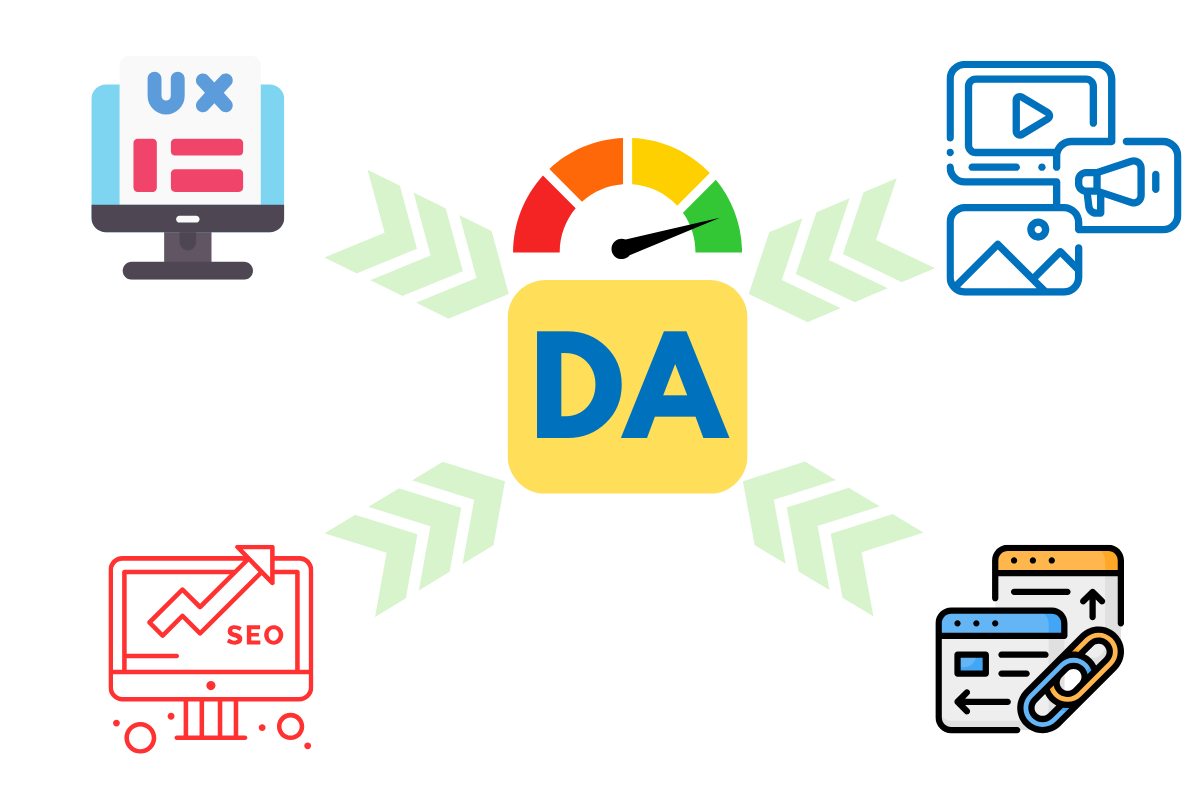Connect
Address
Office 4/184 Pier St,
Perth WA 6000, Australia
Perth WA 6000, Australia
Learn what domain authority is, how it's calculated, and why it matters for SEO. Boost your website's credibility with actionable tips in this guide.

If you’re dipping your toes into the waters of web performance, you’ve probably heard the term “domain authority” thrown around like it’s the holy grail of rankings.
But what exactly is it? Is it the secret sauce for getting to page one on Google, or just another buzzword that marketers love to use?
Spoiler: It’s neither a magic bullet nor marketing puffery. Domain authority (DA) is a super-useful metric that helps you gauge your website’s overall strength in search engine rankings. The higher your DA, the better your chances of competing with the big players in your industry.
Let’s unpack what domain authority is, how it’s calculated, and why you should care about it—without getting lost in the jargon.
If you want to be the main player in the game of Domain Authority, contact Yikes! Marketing. We know what it takes to build trust and authority together.
Domain authority is a score that predicts how well a website is likely to rank on search engine result pages (SERPs). The metric was developed by search engine marketing (SEM) experts Moz and ranges from 1 to 100. The higher your score, the more “authority” your website has in Google’s eyes.
Keep in mind: domain authority isn’t a ranking factor for Google. It’s just a useful metric for SEO professionals to measure a website’s performance and benchmark it against competitors.
Moz uses over 40 different factors to calculate a site’s DA. While the exact formula is proprietary (and no, you can’t bribe them for it), here are some of the key factors that influence your score:
Backlinks (links from other websites pointing to yours) are one of the most critical components of DA. Moz looks at:
Example:
If a popular website like Forbes links to your blog post about “sustainable fashion,” it’s a massive win for your DA. But if a random, low-quality site links to the same post, it won’t carry nearly as much weight.
Moz also evaluates the diversity of your link profile. A site with 100 links from 100 different domains will score higher than one with 100 links from just three domains.
Why it matters:
Diverse backlinks signal to search engines that your content is trusted by a wide variety of sources, not just one or two “friends.”
On-page SEO factors like title tags, meta descriptions, and internal linking don’t directly influence DA, but they play a role in how well your site performs overall—which can impact your backlink profile and authority over time.
Example:
If your site’s content is well-optimised and easy to navigate, other websites are more likely to link to it, boosting your DA indirectly.
Google—and by extension, Moz—cares about how well your website functions.
These factors indirectly influence your DA by affecting how attractive your site is to both users and potential link sources.

(Image: Factors affecting DA)
Okay, so now you know what DA is and how it’s calculated. But why does it matter?
Domain authority gives you a measurable way to track your SEO progress. If your DA score increases over time, it’s a sign that your overall strategy is working.
Example:
Let’s say you start with a DA of 15 and, after six months of building high-quality backlinks and improving your content, your score jumps to 30. This translates to more traffic and sales. That’s tangible evidence that your SEO efforts are paying off.
In the world of SEO, knowledge is power. Knowing your competitors’ DA scores can help you gauge how hard you need to work to beat them on SERPs.
Pro tip: Use tools like Moz’s Link Explorer or Ahrefs to compare your DA with your competitors’. If their DA is higher, you know you’ll need a strong backlink strategy and killer content to compete.
A high DA score, at its most simplistic, is also a trust signal. When other websites link to you, it tells users (and search engines) that your content is valuable, reliable, and worth sharing.
Example:
Imagine you’re searching for “best hiking boots.” You’re more likely to trust a site with a DA of 70 over one with a DA of 10, even if they both appear in the search results.
Now that you’re sold on the importance of DA, let’s talk about how to improve it.
Backlinks are DA’s bread and butter, so make them a priority. Here’s how to get better backlinks ethically:
What NOT to do:
Internal links help distribute “link juice” across your site, improving the authority of individual pages and, by extension, your entire domain.
Quick tips:
The old adage might sound cliché, but content is still king. The better your content, the more likely it is to attract backlinks and engagement.
Examples of high-performing content:
A slow, clunky website isn’t going to impress anyone, least of all Google. Regularly audit your site for technical issues like:
Here’s the kicker: A high DA score doesn’t automatically mean your website will rank higher. As with a lot of things related to SEO, building Domain Authority is a dark art, the inner machinations of which are shrouded in mystery.
Google doesn’t use DA as a ranking factor. Instead, it evaluates individual pages based on relevance, content quality, and user experience. That said, a strong DA can give you an edge, especially in competitive industries where everyone is fighting for the top spots.
The best way to succeed is by testing, reevaluating, and testing again. Working with a Domain Authority expert also helps!

(Image: DA in SEO strategy)
Domain authority is a powerful metric, but it’s not the be-all and end-all of SEO. Think of it as a compass—it helps you understand where your site stands and what you need to do to improve, but it’s not the whole map.
Focus on creating valuable content, building meaningful backlinks, and optimising your site for users, and your DA (and rankings) will naturally improve over time.
Need help boosting your domain authority and climbing the rankings? Yikes! Marketing has you covered. Let’s chat about how we can help your site reach its full potential. Contact us today!
